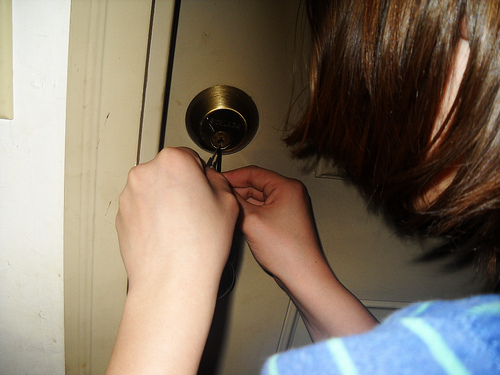One of the most common problems we see in Chicago landlord-tenant relationships is the landlord expecting or demanding to access the leased apartment whenever he likes. Landlords are known to show up at the tenant’s door at all hours of the day, demanding entry or simply letting themselves in. Obviously nobody, whether they rent or own, wants someone barging into their home without invitation. Fortunately, Chicago has imposed strict regulations on landlord access.
Landlords may only enter a Chicago apartment that is subject to the RLTO for proper purposes and only at acceptable times with ample notice. The legality of the landlord’s access depends on the circumstances.
Proper reasons for accessing an apartment
There are eight acceptable reasons for a landlord to access a unit without consent:

- To make necessary or agreed upon repairs or improvements to the unit;
- To supply services that are necessary or agreed upon;
- To conduct inspections required or authorized by the government;
- To show the unit to purchasers, workmen, mortgagees or contractors;
- To show the unit to prospective tenants, but only during the last 60 days of the lease;
- When repairs or maintenance elsewhere in the building unexpectedly require access;
- To determine whether the tenant is obeying the rental agreement; and
- In case of emergency.
Proper notice is required
Two days notice must be given to the tenant except for entries made pursuant to emergency or when repairs elsewhere in the building unexpectedly require access. The notice must be provided by reasonable means designed in good faith to provide notice to the tenant. The law specifically allows notice to be provided by mail, telephone or written notice to the dwelling unit (posting or sliding the notice under the door). If the landlord enters without 2 days notice because of an emergency or repairs elsewhere in the building, he must give the tenant notice of the fact that he did enter within 2 days after the entry There are no other exceptions to the 2 day notice requirement.
The access must be at reasonable times
Landlords may only access a unit at reasonable times of the day. Generally entry between 8:00 a.m. and 8:00 p.m, by consent, or by request is presumed reasonable. A landlord may enter at any time due to an emergency.
The landlord must not abuse the right of access or harass the tenant
Landlords cannot make access that would otherwise be legal in a fashion that harasses the tenant. This is most common when the unit is being shown to prospective tenants. Technically a landlord could show the unit almost constantly if he gave notice of the impending entries 2 days in advance. However, because harassment and abuse is prohibited, a landlord likely violates the law by entering the unit too often
Penalty for unlawful access
If a landlord violates the right of access law, he faces stiff penalties:
- Injunctive Relief: The tenant can obtain a court order barring further improper conduct;
- Termination: The tenant can terminate the rental agreement;
- Penalty: The tenant can recover an amount equal to one month of rent as a penalty for the landlord’s bad behavior;
- Attorney Fees and Costs: If the tenant sues to recover the penalty or secure an injunction, the landlord will also have to pay the tenant’s attorney fees and court costs.
Click here to read our full article on Chicago Tenants’ Rights
Photo credits: m thierry, sakuto.no_sai
